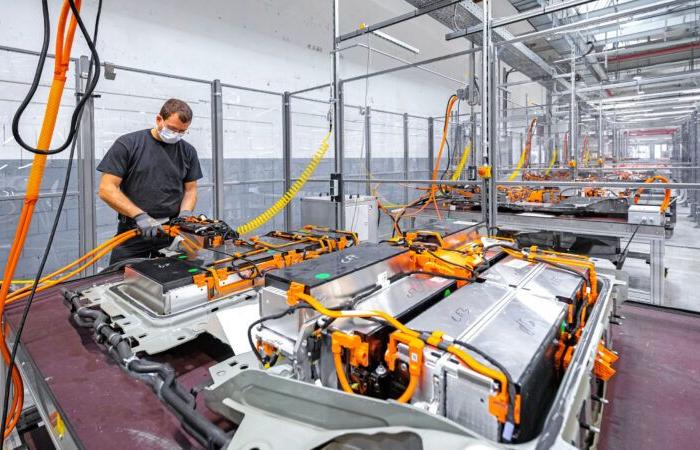
It is possible to bring lithium-ion batteries in electric vehicles ‘back to life’, which can operate for many years: scientists, including those supported by the automotive giant Toyota, have created a kind of super-powerful ‘energy drink’ for the car’s battery. your automobile.
In the study, published in the scientific journal ‘Joule’, experts discovered a way to inject specific chemicals into old lithium-ion batteries, which make it possible to replace the lost charged particles that help the battery store energy. However, this technique will not repair the physically damaged battery, but it allows for a revitalizing treatment.
Lithium-ion batteries are the most common type of rechargeable battery, which powers our everyday lives – from smartphones to electric cars. However, over time, they lose their ability to retain their charge, making them less efficient and reliable.
However, it is possible to restore the battery’s original capacity, according to researchers at Toyota’s Central R&D Laboratories in Japan, who used a single-step process that could reduce waste and increase the supply of batteries for fleets of electric cars.
Scientists injected a special substance, called recovery reagent, into the battery cells, which triggers a chemical reaction that produced more lithium ions and electrons, the two particles that allow a battery to store energy – experts were able to reverse the degradation battery and restore 80% of its original capacity.
The restored battery maintained its performance through 100 charge and discharge cycles. “The effectiveness of the system was verified not only with small batteries for laboratory use, but also large batteries for automotive use,” revealed Nobuhiro Ogihara, the study’s main investigator.
The technique could extend the life of lithium-ion batteries, allowing them to be reused in electric cars or other devices, rather than being discarded or going through a complex process of disassembly and recycling. This could save money, resources and the environment, as lithium-ion batteries contain valuable and scarce materials such as cobalt and nickel, which are often extracted unsustainably.
However, the technique is not a silver bullet for all types of battery degradation. It only works for batteries that have lost their ions due to repeated charging and discharging, not those that have suffered structural damage or other forms of deterioration.
“It’s only for batteries that have suffered a very specific form of degradation… and that’s only useful if you know the history of the battery or can diagnose its condition using simple, non-destructive methods,” said Jacqueline Edge, an expert in battery degradation. batteries at Imperial College London, adding that long-term studies are needed to understand the potential side effects of chemical injection into the battery and its safety.
Tags: Batteries longer store energy Scientists create energy drink recover original capacity
--




